Tight and tense shoulders is a common complaint at the clinic, with people really battling pain, discomfort and sleeplessness as a result. Rather than suffer in silence we encourage people to ask for help to get on top of the problem sooner rather than later. Here are some of our best tips for tight shoulders.1. Why the thing we need the most is the thing we pay attention to the least. Water. Staying hydrated is so important to muscle fibres and cells to remain in great condition. We are 85% water and if you're dehydrated, there's no surprise why you might be paying with pain in your neck and shoulders.
[perfectpullquote align="full" cite="" link="" color="" class="" size=""]But when we say WATER, we actually mean Water AND THEN SOME.[/perfectpullquote]
Adding Electrolytes to your water can help your muscles even more because they are salts. Water follows salt and so if salt is going into the cells, so is the water, flushing out cellular waste and bi-products of cell function. One of the 4 electrolytes is Magnesium, a natural muscle relaxant.
Put into Practice: Definitely get your hands on some electrolytes and drink through the acute phase until the muscles feel better and less tense.
2. Get Bendy!
Stretching can never be underestimated! Whether you work at a desk all day or drive in a car, these are really unnatural positions forour bodies to be in. [perfectpullquote align="full" cite="" link="" color="" class="" size=""]Think of stretching as a good "reset" button for your muscles.[/perfectpullquote]
Stretching encourages blood vessel contraction and dilation to flush tired muscles with fresh circulation. It also signals to the muscle fibres to lengthen, which is EXACTLY the message tight muscles need.
Its called Stretching not Straining!
Remember stretching is really beneficial for your muscles, but overdoing it can cause strains or tears in weak muscles. Start with Baby steps and work up to more intense stretching. So taking the muscle to a sensation of stretch is your end point. Don't push it or you'll be hurting a whole lot more.
Put into Practice:
- Join a yoga class if you haven't tried it before
- If you already doing Yoga, try increasing your class frequency to 2-3 times per week.
- Take stretching breaks at work to stretch your neck and shoulders
- Stretch before you go to sleep and first thing when you wake up.
3. If you don't use it you lose it.
Movement is king. It's true if you don't use (or move) your neck and shoulders), you can lose range of motion. This applies to neck and shoulder tension from WEAKNESS as well as OVERUSE. If you have weak muscles, gentle resistance training or light weights for building up arm strength and shoulder strength can help tone you up. In the case of overuse, I would be doing exercise that got the neck and shoulders moving. Swimming is a great example - the weight of your head is supported by the water, and to breathe you are rotating your neck slightly to each side which is gentle movement.
Putting into Practice:
- Swimming Freestyle laps in a pool
- Paddling in a canoe or kayak
- Surfing
- Tai Chi, Qi Gong are more gentle exercises without forcing any movement
- Yoga, Pilates
Finally if you're doing all of this and you're still in pain, then it's time to push the "I need help" button and make contact with us. We have a great Osteopath, Acupuncturist & Massage Therapist on call ready to help you. Sometimes, you can simply be locked up and your muscles need extra help and support to let go and recover. To let us know what you need, you can email us at info@familywellnesscentre.com.au or book online here.


